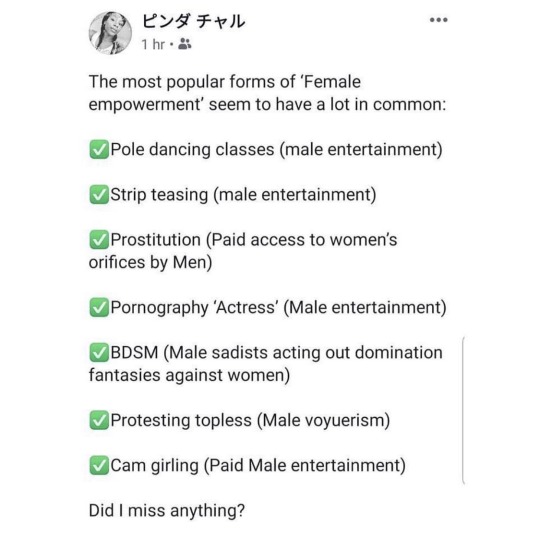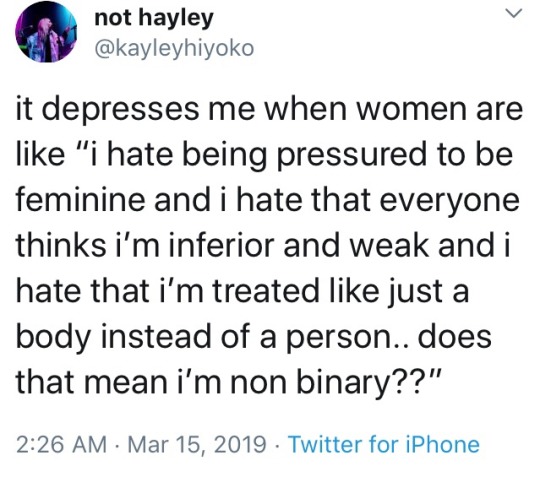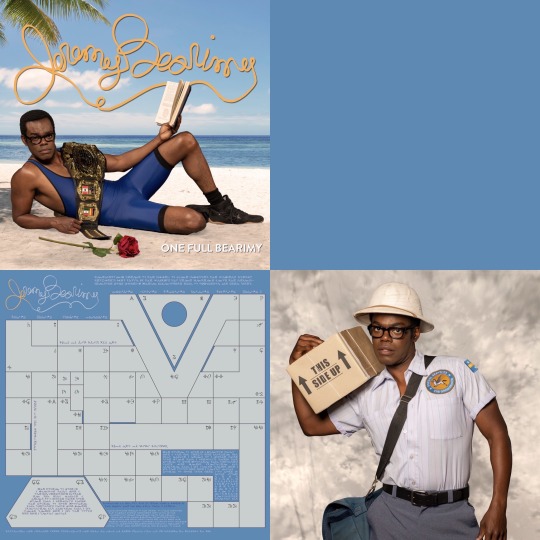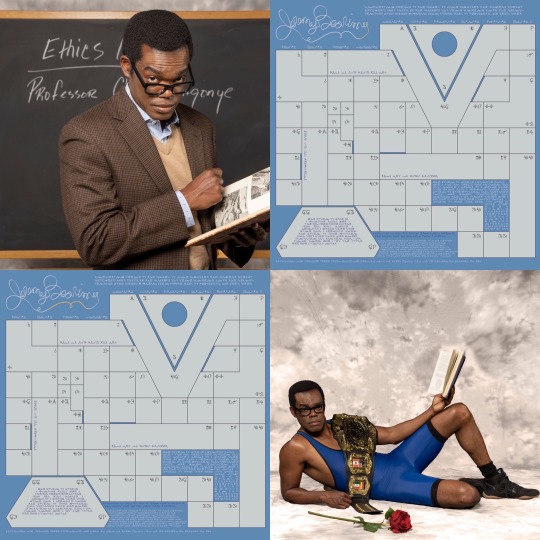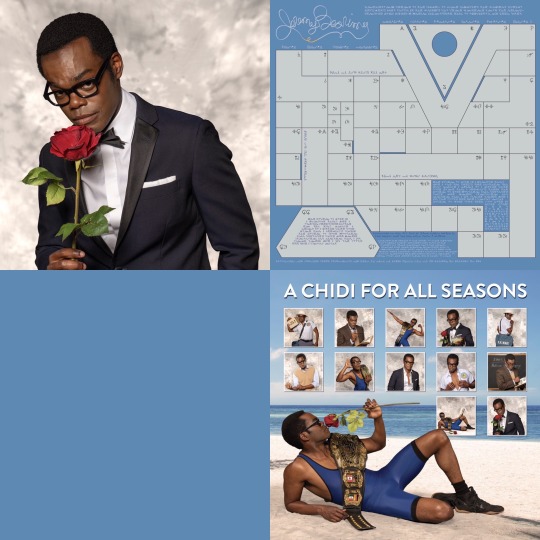Text
Reason to Live #4820
To adopt a dog/cat and give it a forever home and love in abundance! – Guest Submission
(Please don’t add negative comments to these posts.)
219 notes
·
View notes
Text
I don’t “believe” in sexual dimorphism. I’m aware of it. I observe it. It’s not a thing that can be believed in or not believed in. That implies that it’s either up for debate or not real at all.
4K notes
·
View notes
Note
what's a radfem?
Radical feminism is a perspective within feminism that calls for a radical reordering of society in which male supremacy is eliminated in all social and economic contexts.
That means that radfems are critical of and seek to dismantle the following:
Femininity: Women in all cultures are required to perform certain harmful practices altering their appearance in order to be respected and tolerated by society.
Beauty Industry: Exploits the requirements for femininity for male profit, as most companies are owned by men.
Heterosexism: Women in all cultures are expected to be attracted to and live their lives centering men and catering to their personal needs.
Marriage: The ownership of women by individual men in their lives (father to husband); women are pressured to partner with men in order to reap social benefits they otherwise have no access to.
Prostitution: The paid rape of (mainly) women by men in order for them to escape poverty or due to trafficking; purchased consent is coercion.
Pornography: The increasingly violent filmed rape and torture of (mainly) women for (mainly) men’s pleasure, physically and mentally harmful.
Surrogacy: The commodification of pregnancy and motherhood by making the female body something to be rent and bought.
Capitalism: A system that allows for the exploitation of women’s work and the commodification of their bodies.
BDSM: Sexualized power imbalances mainly at the expanse of women (which curiously emerged at a time when western women finally gained more societal power and freedom and is oddly reflective of historical torture methods for women).
PIV sex: Is seen as the main sex act even though it’s sexually unsatisfying for the majority of women and dangerous as it can cause pregnancy.
Reproductive rights: Currently women are not granted full body autonomy, as a fetus’ life is valued higher; a method of men to control reproduction.
Religion: False attribution of the creation of life to the male sex; justifies the subjugation of women by men.
Psychoanalysis: Originated partly in order to pathologize women’s trauma and enforce their gender role.
Queer theory/postmodernism: Allows for men to undo years of progress made by feminists on the notion that women are not oppressed for their biological reality, and propagates the idea that women can opt out of their oppression and men can become part of it.
Individualism: Refusal to view men and women as classes with different interests but rather as individuals who cannot be generalized.
3K notes
·
View notes
Text
how to learn new content and never forget it
save this for your next academic year and finals, and it’ll save your grades and time.
1. whenever you read a paragraph with new content, close the book/look away and ask yourself: “what have i just learned?” explaining the concept to yourself right away and asking follow-up questions will change the way you retain new material forever.
2. at first, it’ll be daunting, and it’ll be pretty hard to actually bring yourself to do this. trust me, it’ll be worth it - as this is scientifically proven one of the most effective study techniques.
3. to try this out, set yourself a timer for how long you estimate learning a concept might take. now take away 20% from that estimate. you won’t be able to reach this goal with basic highlighting and re-reading techniques - but with active recall, you will.
4. once you’ve understood the concept, use spaced repetition systems like anki flashcards to force yourself to retrieve this information in a set period of time. this way, your brain will always be reminded of this concept before it could possibly forget it.
5. teach it to others as much as you can. as with the old wisdom “see one, do one, teach one”, one of the only guarantees you’ve really gotten something is when you can effectively teach it.
hope these are helpful for you!!
more content like this on my instagram, @softmedstudent
12K notes
·
View notes
Text
Academic writing advice inspired by Umberto Eco’s ‘How to Write a Thesis’:
Planning
Determine primary sources/bibliography.
Determine secondary sources/bibliography.
Find title.
Brainstorm a table of contents with as much detail as possible (with chapters, sections and even paragraphs and sub-paragraphs - see How to Write a Thesis’ own table of contents as an example at the end of this document) (if the first drafted table of contents is good enough, it will not be necessary to start the writing from the beginning).
Do a first draft of the introduction.
Note-taking and research
Use Google Scholar to make sure you do not miss important sources.
Keep the table of contents in mind when researching and take notes of which sources could go where.
While note-taking, differentiate which parts could be used as quotations from the ones that are simply important for the argument.
Eco underlines the importance of what he calls reading sheets, which can be understood as your notes on your readings. According to him, these should contain:
information about the author if he is not a well-known figure;
a brief (or long) summary;
they should mostly consist of quotations (accompanied by all the corresponding page numbers)
any commentaries you might want to add;
an indication of which part (or parts) of your table of contents the information mentioned belongs to.
Keep reading sheets on primary sources (which should be the longest) separate from those on secondary sources (which should only be 1-2 pages long).
In the end, re-read the notes and color-code all the different parts according to where they would fit in your table of contents.
Writing and editing
A good place to start would be by redrafting the introduction.
Define every key/technical term used/mentioned unless indisputably obvious.
General writing tips:
keep sentences short;
do not be afraid to repeat the subject twice (ex: Roberta went to the shop (…) Roberta bought carrots and tomatoes);
avoid excessive details;
avoid subordinate clauses (orações subordinadas);
avoid vague language;
avoid unnecessary adjectives;
avoid the passive voice.
While drafting, write everything that comes to mind. Leave the editing for the end.
Use your tutor as a Guinea pig. Make them read your first chapters (and, progressively, all the rest) well before delivery is due.
Ask for as much feedback as possible. Ask colleagues, friends and/or family to read your work. They will provide you with more diversified feedback, as well as allowing you to know if your writing is clear to anyone.
Stop playing ‘solitary genius’.
Don’t insist on starting with the first chapter. Start with what you know best and feel more comfortable writing about, then fill in the gaps.
Leave time for editing and try to take at least a one or two days long break in between writing and editing.
Do not forget to fill in the gaps. When you revisit your writing, go through it with all these writing tips in mind as well as a conscience of what your most common mistakes are.
Use Hemingway in the final editing phase.
Quotations and footnotes
Since there are two kinds of sources (primary and secondary), there are also two kinds of quotations: either we quote a text which we will interpret, or we quote a text which supports your interpretation.
Some quotation rules to know:
“Quote the object of your interpretive analysis with reasonable abundance.”
“Quote the critical literature only when its authority corroborates or confirms your statements. (…) when quoting or citing critical [aka secondary] literature, be sure that it says something new, or that it confirms authoritatively what you have said.”
“If you don’t want readers to presume that you share the opinion of the quoted author, you must include your own critical remarks before or after the passage.”
“Make sure that the author and the source of your quote are clearly identifiable.”
“When a quote does not exceed two or three lines, you can insert it into the body of the text enclosed in quotation marks. (…) When the quote is longer, it is better to set it off as a block quotation. In this case the quotation marks are not necessary, because it is clear that all set-off passages are quotes, and we must commit to a different system for our observations. (Any secondary developments [like the quote’s reference] should appear in a note.) (…) This method is quite convenient because it immediately reveals the quoted texts; it allows the reader to skip them if he is skimming, to linger if he is more interested in the quoted texts than in our commentary, and finally, to find them immediately when need be.”
Some footnote rules to know:
“Use notes to add additional supporting bibliographical references on a topic you discuss in the text. For example, ‘on this topic see also so-and-so.’”
“Use notes to introduce a supporting quote that would have interrupted the text. If you make a statement in the text and then continue directly to the next statement for fluidity, a superscript note reference after the first statement can refer the reader to a note in which a well-known authority backs up your assertion.”
“Use notes to expand on statements you have made in the text. Use notes to free your text from observations that, however important, are peripheral to your argument or do nothing more than repeat from a different point of view what you have essentially already said.”
“Use notes to correct statements in the text. You may be sure of your statements, but you should also be conscious that someone may disagree, or you may believe that, from a certain point of view, it would be possible to object to your statement. Inserting a partially restrictive note will then prove not only your academic honesty but also your critical spirit.”
“Use notes to provide a translation of a quote, or to provide the quote in the original language.”
10K notes
·
View notes
Text
Dark Academia Books for Students of Politics and International Relations:
I mean, heck, I am no expert but my need to see this niche ass post is a lot so here goes.
The Prince: Machiavelli- do I NEED to explain this one. Its a seminal text in politics and political philosophy and when you listen to the ideas described in it they can sound a little crazy but once you read it you realise they are still crazy but grounded in something very real. Also its short as heck and an easy read.
Politics among Nations: The Struggle for Power and Peace- Hans J Morgenthau. I had to pick this one up for my coursework last semester and I thought it would be a snooze fest but no. I was drawn in and I haven’t finished it since but I do plan to get back to it at my leisure.
The End of History and the Last Man: Francis Fukuyama- YES, I fundamentally disagree with Fukuyama on so many points. YES, it is still one of my favourite books of all time. it is a very riveting discussion of political philosophy, history and international relations. If you are interested in any of those topics, pick it up. You won’t regret it.
How Democracy Ends: David Runciman- captivatingly written, great arguments, and a very unique voice. Super relevant in today’s international political atmosphere and if you are interested in studying the rise of right wing authoritarian governments across the globe, this is a great place to start.
Thomas Hobbes: Leviathan- another one that I just feel like i don’t need to explain. Again haven’t read it fully yet, but its quite chill inducing and the basis for most of the contemporary discussion on state, liberalism, authoritarianism, rights and so forth.
These were just my recommendations, and I by no means claim that they cover the entire gamut of the field. In fact, I would consider myself a noob still where texts relating to politics or IR are concerned, so feel free to give your recommendations and opinions as well!
9K notes
·
View notes
Text
typical series finale reviews: It sure wrapped up some of those storylines in a big way
The Good Place series finale reviews: It helped me accept the inevitability of death
7K notes
·
View notes
Photo

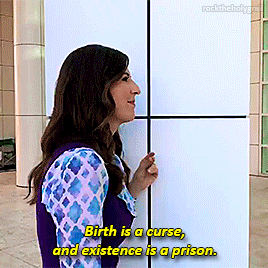

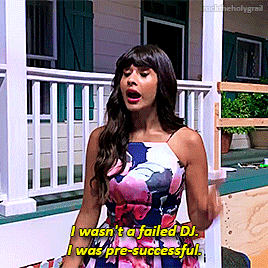


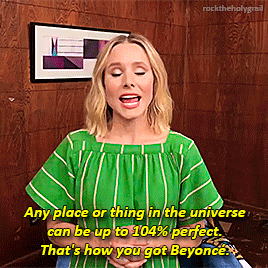

The Good Place cast + saying each other’s lines (Part One - Eleanor, Michael, and Jason)
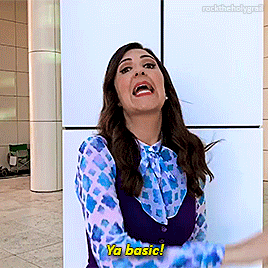
11K notes
·
View notes
Photo
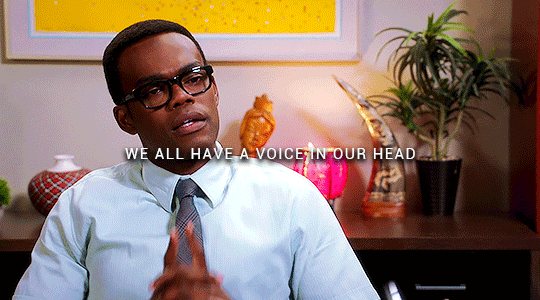
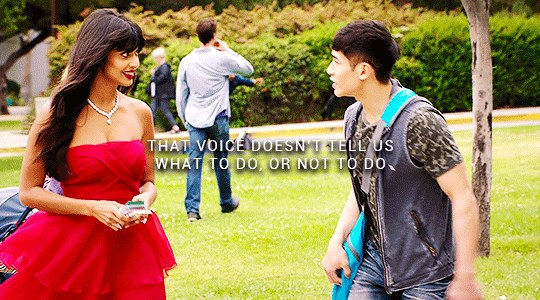
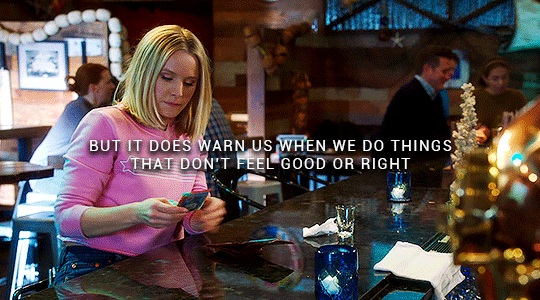





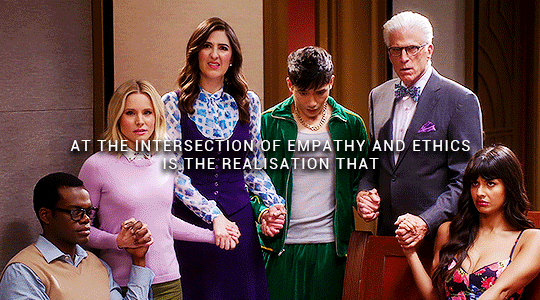
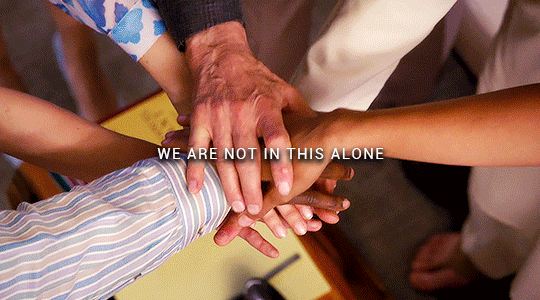
The Good Place Appreciation Week
Day 6: Favorite Lesson
↳ What do we owe to each other
15K notes
·
View notes
Text
24 Invaluable Skills To Learn For Free Online This Year
Here’s an easy resolution: This stuff is all free as long as you have access to a computer, and the skills you learn will be invaluable in your career, and/or life in general.
1. Become awesome at Excel.
Chandoo is one of many gracious Excel experts who wants to share their knowledge with the world. Excel excellence is one of those skills that will improve your chances of getting a good job instantly, and it will continue to prove invaluable over the course of your career. What are you waiting for?
2. Learn how to code.
littleanimalgifs.tumblr.com
Perhaps no other skill you can learn for free online has as much potential to lead to a lucrative career. Want to build a site for your startup? Want to build the next big app? Want to get hired at a place like BuzzFeed? You should learn to code. There are a lot of places that offer free or cheap online coding tutorials, but I recommend Code Academy for their breadth and innovative program. If you want to try a more traditional route, Harvard offers its excellent Introduction to Computer Science course online for free.
3. Make a dynamic website.
You could use a pre-existing template or blogging service, or you could learn Ruby on Rails and probably change your life forever. Here’s an extremely helpful long list of free Ruby learning tools that includes everything from Rails for Zombies to Learn Ruby The Hard Way. Go! Ruby! Some basic programming experience, like one of the courses above, might be helpful (but not necessarily required if you’re patient with yourself).
4. Learn to make a mobile game.
If you’re not interested in coding anything other than fun game apps, you could trythis course from the University of Reading. It promises to teach you how to build a game in Java, even if you don’t have programming experience! If you want to make a truly great game, you might want to read/listen up on Game Theory first.
5. Start reading faster.
Spreeder is a free online program that will improve your reading skill and comprehension no matter how old you are. With enough practice, you could learn to double, triple, or even quadruple the speed at which you read passages currently, which is basically like adding years to your life.
6. Learn a language!
With Duolingo, you can learn Spanish, French, Portuguese, Italian, or English (from any of the above or more). There’s a mobile app and a website, and the extensive courses are completely free.
Full disclosure: BuzzFeed and other websites are in a partnership with DuoLingo, but they did not pay or ask for this placement.
7. Pickle your own vegetables.
Tired of your farmer’s market haul going bad before you use it all? Or do you just love tangy pickled veggies? You too can pickle like a pro thanks to SkillShare and Travis Grillo.
8. Improve your public speaking skills.
You can take the University of Washington’s Intro to Public Speaking for free online. Once you learn a few tricks of the trade, you’ll be able to go into situations like being asked to present at a company meeting or giving a presentation in class without nearly as much fear and loathing.
9. Get a basic handle of statistics.
UC Berkeley put a stats intro class on iTunes. Once you know how to understand the numbers yourself, you’ll never read a biased “news” article the same way again — 100% of authors of this post agree!
10. Understand basic psychology.
Knowing the basics of psych will bring context to your understanding of yourself, the dynamics of your family and friendships, what’s really going on with your coworkers, and the woes and wonders of society in general. Yale University has its Intro to Psychology lectures online for free.
11. Make your own music.
Step one: Learn how to play guitar: Justin Guitar is a fine and free place to start learning chords and the basic skills you’ll need to be able to play guitar — from there, it’s up to you, but once you know the basics, just looking up tabs for your favorite songs and learning them on your own is how many young guitar players get their start (plus it’s an excellent party trick).
Step two: A delightful free voice lesson from Berklee College Of Music.
Step three: Have you always thought you had an inner TSwift? Berklee College of Music offers an Introduction to Songwriting course completely for free online. The course is six weeks long, and by the end of the lesson you’ll have at least one completed song.
Step four: Lifehacker’s basics of music production will help you put it all together once you have the skills down! You’ll be recording your own music, ready to share with your valentine or the entire world, in no time!
12. Learn to negotiate.
Let Stanford’s Stan Christensen explain how to negotiate in business and your personal life, managing relationships for your personal gain and not letting yourself be steamrolled. There are a lot of football metaphors and it’s great.
13. Stop hating math.
If you struggled with math throughout school and now have trouble applying it in real-world situations when it crops up, try Saylor.org’s Real World Math course. It will reteach you basic math skills as they apply IRL. Very helpful!
14. Start drawing!
All kids draw — so why do we become so afraid of it as adults? Everyone should feel comfortable with a sketchbook and pencil, and sketching is a wonderful way to express your creativity. DrawSpace is a great place to start. (I also highly recommend the book Drawing on the Right Side of the Brain if you can drop a few dollars for a used copy.)
15. Make your own animated GIF.
BuzzFeed’s own Katie Notopoulos has a great, simple guide to making an animated GIF without Photoshop. This is all you need to be the king or queen of Tumblr or your favorite email chains.
16. Appreciate jazz.
reddit.com
Have you never really “gotten” jazz? If you want to be able to participate in conversations at fancy parties and/or just add some context to your appreciation of all music, try this free online course from UT Austin.
17. Write well.
Macalester College’s lecture series is excellent. If you’re more interested in journalism, try Wikiversity’s course selection.
18. Get better at using Photoshop.
Another invaluable skill that will get you places in your career, learning Photoshop can be as fun as watching the hilarious videos on You Suck At Photoshop or as serious as this extensive Udemy training course (focused on photo retouching).
19. Take decent pictures.
Lifehacker’s basics of photography might be a good place to start. Learn how your camera works, the basic of composition, and editing images in post-production. If you finish that and you’re not sure what to do next, here’s a short course on displaying and sharing your digital photographs.
20. Learn to knit.
Instructables has a great course by a woman who is herself an online-taught knitter. You’ll be making baby hats and cute scarves before this winter’s over!
21. Get started with investing in stocks.
If you are lucky enough to have a regular income, you should start learning about savings and investment now. Investopedia has a ton of online resources, including this free stocks basics course. Invest away!
22. Clean your house in a short amount of time.
Unf$#k Your Habitat has a great emergency cleaning guide for when your mother-in-law springs a surprise visit on you. While you’re over there, the entire blog is good for getting organized and clean in the long term, not just in “emergencies.” You’ll be happier for it.
23. Start practicing yoga.
Most cities have free community classes (try just searching Google or inquiring at your local yoga studio), or if you’re more comfortable trying yoga at home, YogaGlohas a great 15-day trial and Yome is a compendium of 100% free yoga videos. If you’re already familiar with basic yoga positions but you need an easy way to practice at home, I recommend YogaTailor’s free trial as well.
24. Tie your shoelaces more efficiently.
It’s simple and just imagine the minutes of your life you’ll save!
252K notes
·
View notes


